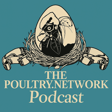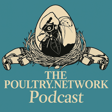
E8 RSPCA: How it developed its latest laying hen standards
In this episode of the Poultry Network podcast, co-hosts Tom Woolman and Tom Willings are joined by Kelly Grellier, Chief Commercial Officer at RSPCA Assured, and Kate Parkes, Senior Scientific Officer at the RSPCA, to explore the updated laying hen welfare standards.
The conversation opens with an explanation of the relationship between the RSPCA and RSPCA Assured.
The RSPCA is responsible for writing the welfare standards, informed by peer-reviewed science, practical trial data, and veterinary input. RSPCA Assured supports implementation, conducts assessments, and helps producers apply the standards on farm.
The guests discuss how scientific research, outcome-based measures, and producer feedback are all considered when updating standards.
While RSPCA Assured has gathered over a decade of farm-level welfare data, such as feather cover and flock behaviour, they acknowledge that analysing this data in a more strategic way is a future priority.
To support this, they’ve invested in a new Impact and Insights team to enhance how data informs benchmarking and continuous improvement.
The Standards Technical Advisory Group (STAG), comprising researchers, vets, and producers, plays a central role in developing and refining the standards.
For the 2023 laying hen standards, discussions began in 2021 and included consultations with producers, manufacturers, and industry experts.
After implementation, an additional working group—comprising regional producers and STAG representatives—was formed to address practical concerns.
This led to clarification in wording and, in a few cases, adjustments to make implementation more feasible while preserving welfare goals.
The episode highlights the importance of broad and ongoing consultation, especially in light of external reviews, such as the AHDB and NFU-led Farm Assurance Review and Defra’s review into fairness in the supply chain.
Both have reinforced the value of engagement at a practical level, something the RSPCA is committed to embedding in future revisions.
Looking ahead, the next version of the laying hen standards is expected in 2027.
While major changes are not anticipated, the team will begin consulting on topics flagged in the current version’s information boxes.
These may signal future aspirations or focus areas but will undergo the same robust review and consultation process.
Kelly and Kate also share how producers can engage in the development process—whether through the regional working group, contact with the farm and technical engagement team, conversations with assessors, or by reviewing publicly available summary notes on the RSPCA websites.
The podcast closes with a discussion on the role of supermarkets. While retailers are not directly involved in STAG, RSPCA Assured has strong relationships with agricultural teams within retail businesses and has created a new team focused on engaging them around welfare strategy alignment.
Crucially, however, the standards remain independently set.
The episode underscores the challenge and necessity of balancing science, practicality, and commercial viability in welfare assurance—and the importance of collaboration at every stage.

